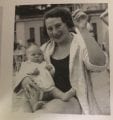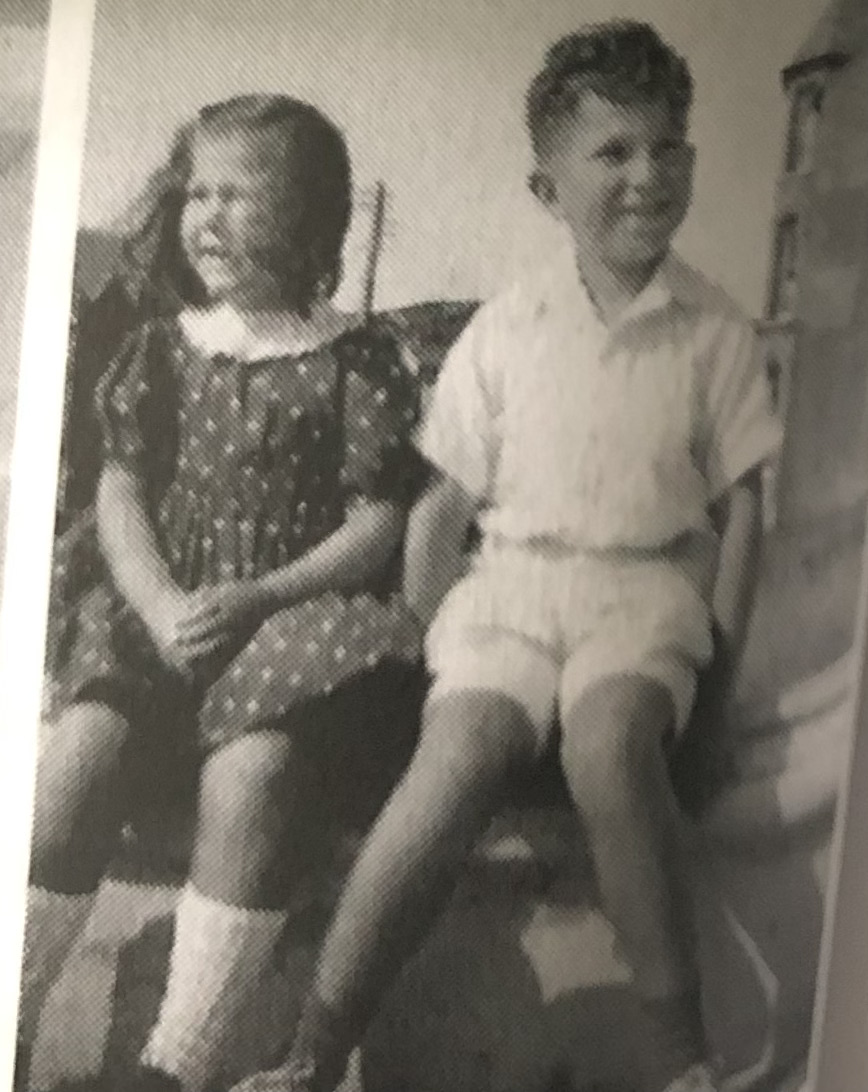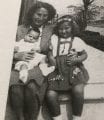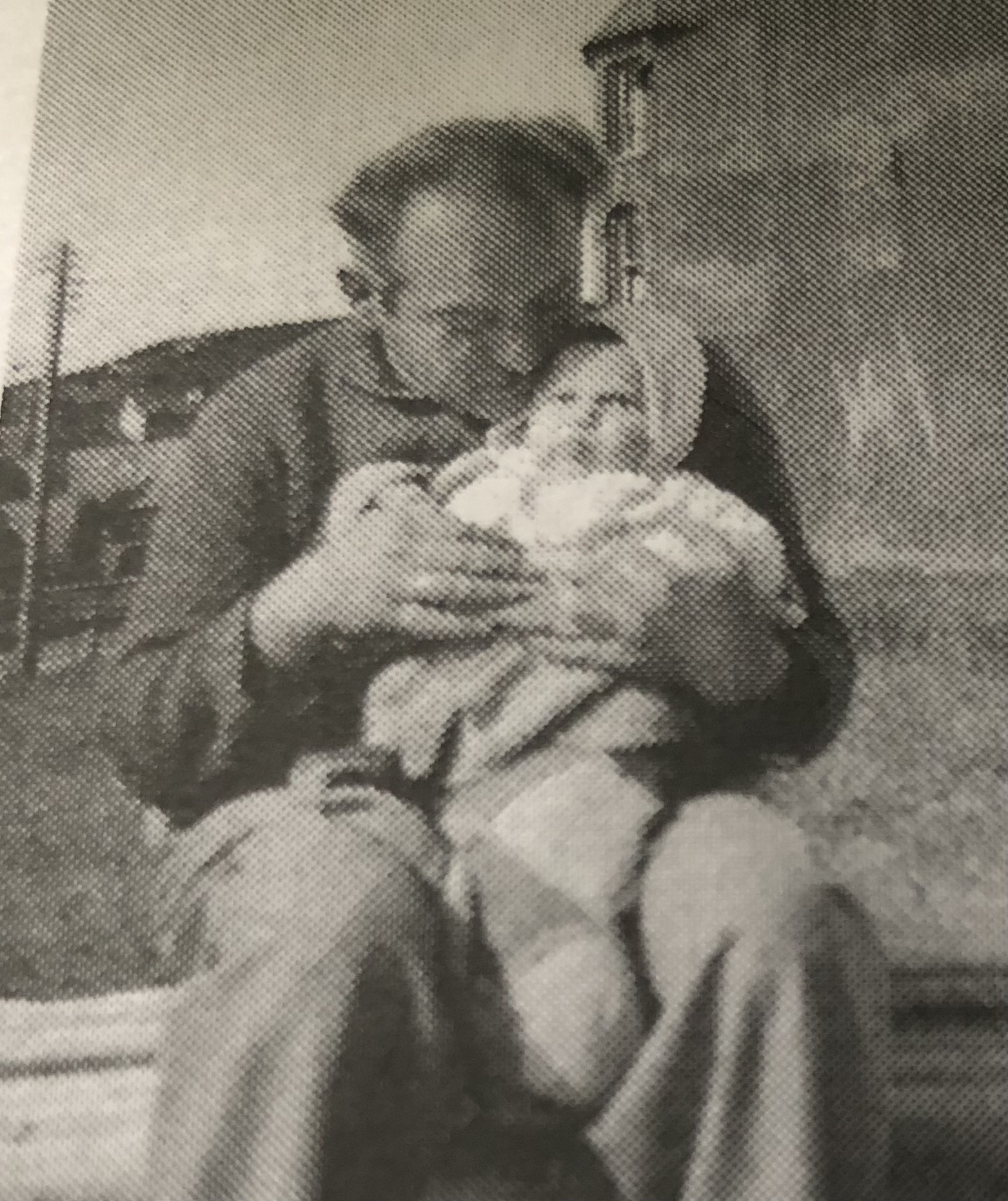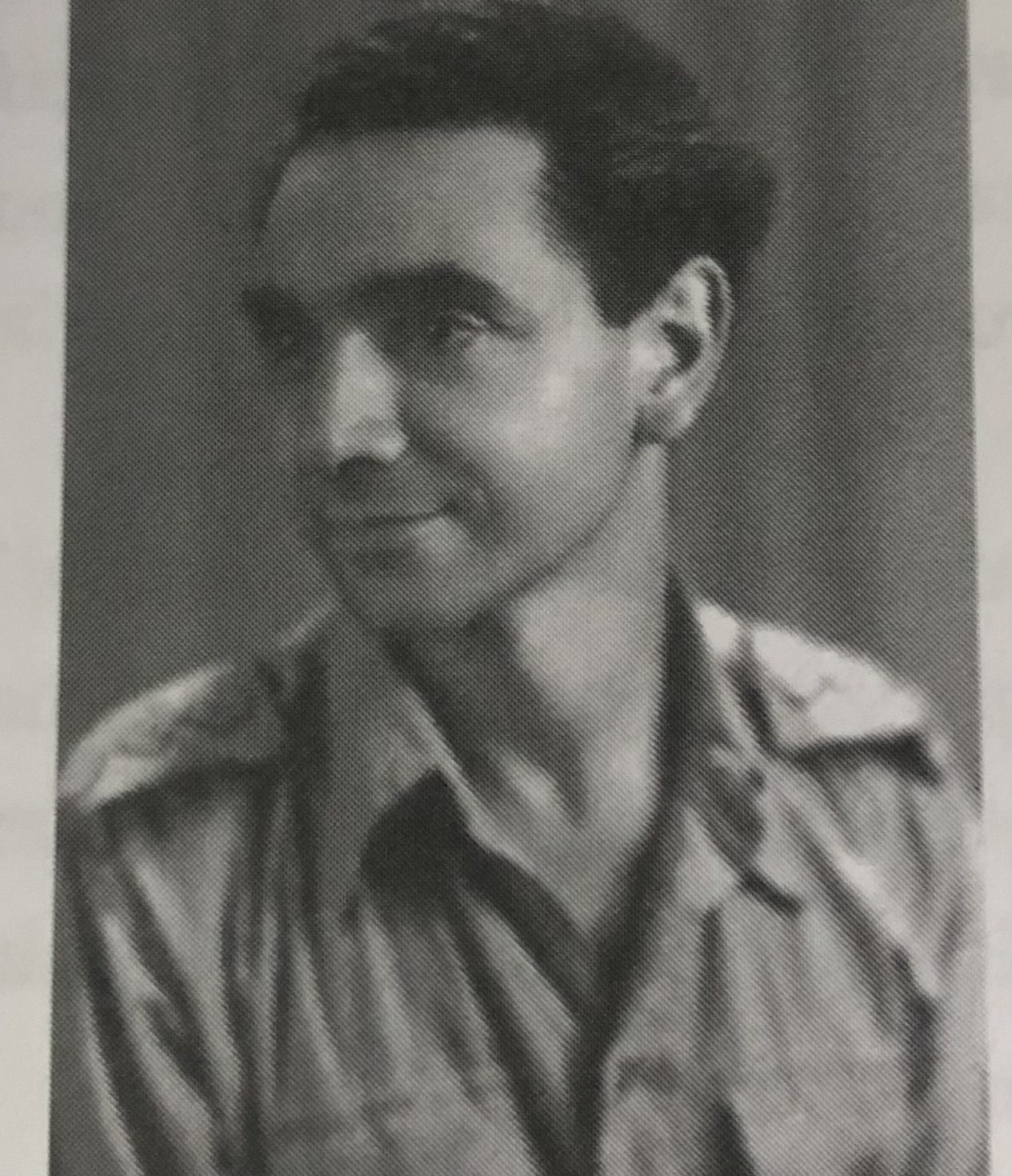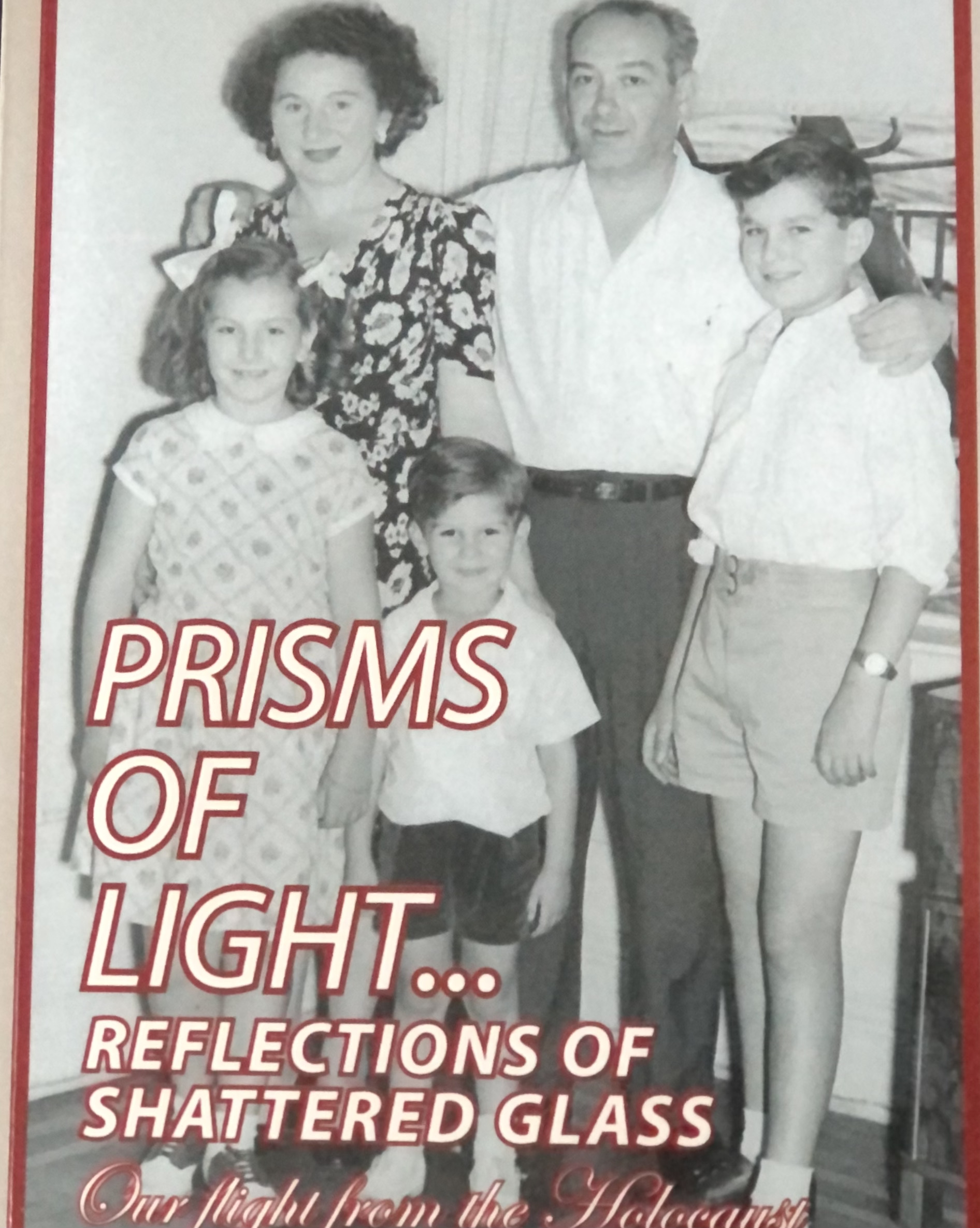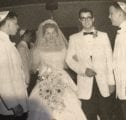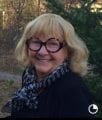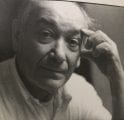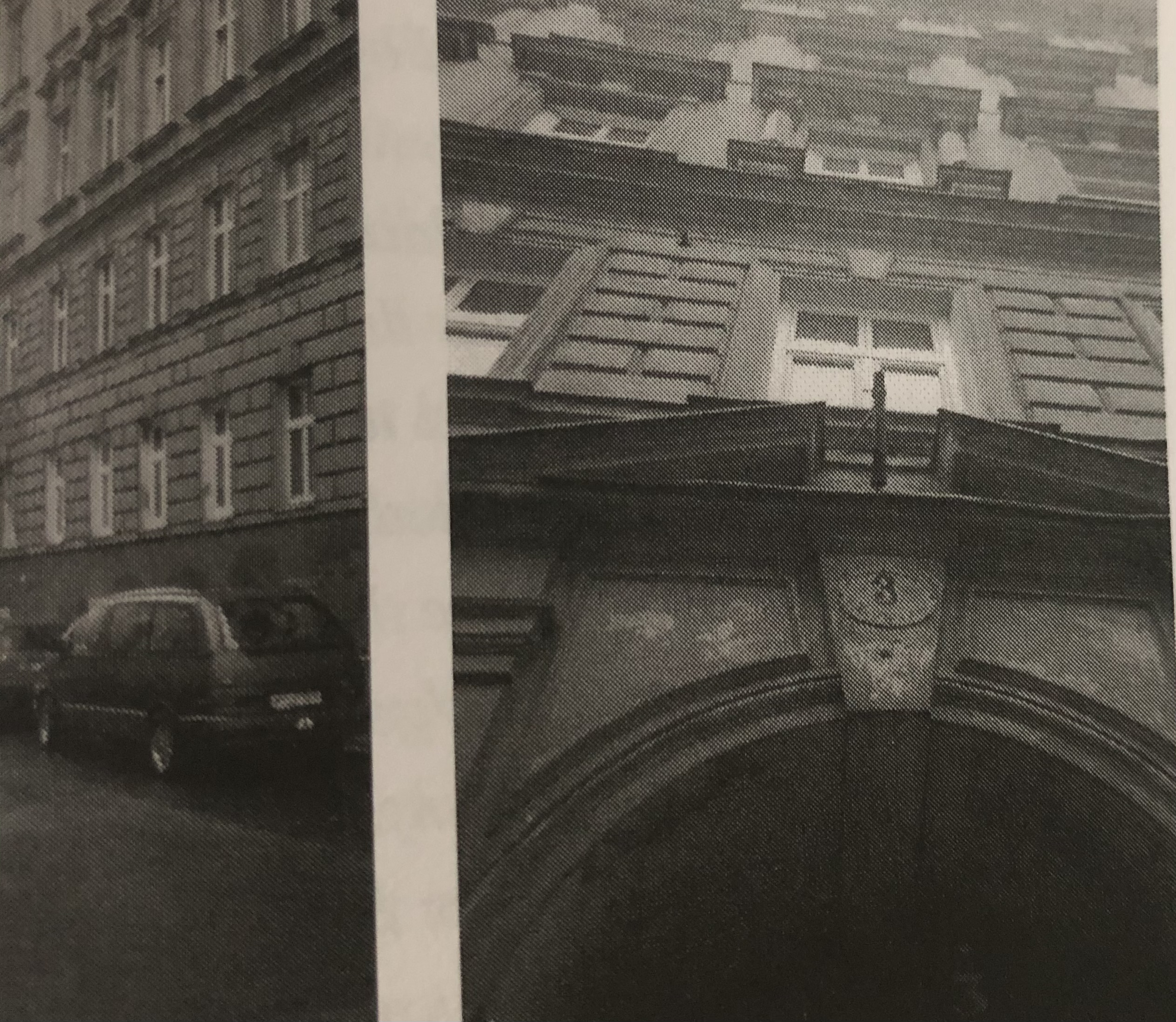- Local Survivor registry
- TRUDY KLEIN GOMPERS
- Local Survivor registry
- TRUDY KLEIN GOMPERS
Survivor Profile
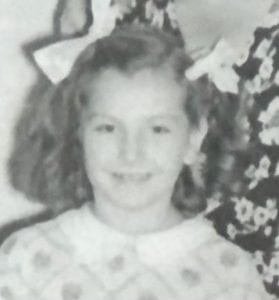
TRUDY
KLEIN
GOMPERS
(1937-PRESENT)
PRE-WAR NAME:
GERTRUDE KLEIN
GERTRUDE KLEIN
PLACE OF BIRTH:
VIENNA, AUSTRIA
VIENNA, AUSTRIA
DATE OF BIRTH:
FEBRUARY 8, 1937
FEBRUARY 8, 1937
LOCATION(s) BEFORE THE WAR:
VIENNA, AUSTRIA
VIENNA, AUSTRIA
LOCATION(s) DURING THE WAR:
ISLE OF MAN , RUSHEN INTERNMENT CAMP; LONDON
ISLE OF MAN , RUSHEN INTERNMENT CAMP; LONDON
STATUS:
CHILD SURVIVOR, REFUGEE
CHILD SURVIVOR, REFUGEE
RELATED PERSON(S):
LOUIS G. GOMPERS - Spouse (Deceased),
MICHAEL GOMPERS - Son,
GEOFFREY GOMPERS - Son,
ANNIE KLEIN - Mother (Deceased),
SIGMUND KLEIN - Father (Deceased),
COLIN KLEIN, BROTHER
-
extended BIOGRAPHY BY NANCY GORRELL
Adapted from Prisms of Light…Reflections of Shattered Glass: Our Flight from the Holocaust by Trudy Gompers
Gertrude’s great-grandparents, the Seidlers, worked on a farm in Vertelka, a shtetl of Poland, near the border of Russia. Their life was a hard one of farming and their shelter was crude. They made income by making whiskey and breads which they sold to the Russian soldiers. Their sons, Hesch and Chaim worked the fields and their sister, Fanni helped her mother in the house. The progroms were frequent. Berman Herz, a distant cousin of Fannis, left for Vienna. He would visit often, “filling Fanni’s head with wonderous stories about the beauty and excitement of the city.” One day he succumbed to Fanni’s “charms, beauty and advances and married her.” Fanni begged her parents to come lived with her in Vienna. Eventually, they relented. Fanni’s brothers, Hesch and Chaim, left for New York.
Bermann Herz, Gertrude’s grandfather, struggled to support the entire growing family in Vienna. He was just a rag man, a textile salesman. They lived in a tiny, crowded apartment. World War I loomed and by this time they had five children—one son, Max and four daughters, one of them, Annie, Gertrude’s mother. Annie loved her Omama and Opapa. She remembers with fondness visiting the farm and having them live with her.
Annie Herz, grew up in Vienna loving fashion and the city. She entered trade school to learn dressmaking and design. She apprenticed at the finest women’s clothing salon in Vienna. She met a charismatic man, Ziggy Klein, while travelling to work and they married June 30, 1930. “Life was a lark for the young married couple,” as they absorbed the culture of Vienna. Soon Annie was pregnant, but lost the baby to a botched birth. She was inconsolable. But Annie, “afraid she would lose the man she loved, finally gave into his [Sigmund’s] physical needs. Soon she became pregnant again and gave birth to a son, Gerhard (Gary). Two years later she was pregnant again, this time with Gertrude (Trudy). Trudy was born February 8, 1937.
Trudy was a toddler when the Nazi’s issued a proclamation that all Jews leave Austria no later than November 10, 1938. According to Gertrude in her memoir, “It further stated that after that date all Jews would be rounded up and put into concentration camps for processing and redistribution. Who knew what that meant?” Trudy’s mother, Annie didn’t want to leave her parents. All the others had left already. Trudy’s mother was the only one who stayed with her grandparents who didn’t want to leave. “They were old, they reasoned, and no one would bother with old people.” They owned the apartment building they were living in (Refer to photo of Building #3 Wolfsau Gasse, Vienna in Related Media).
Trudy’s family left Vienna November 6, 1938, “Mama’s birthday” she notes, just three days before Kristallnacht. Trudy was eighteen months old, her brother Gary, five. There was looting and “mayhem” at the time. Her parents tried to remain invisible. The only family left was Omama and Opapa. Her parents took the bare essentials and fled after dark taking a late-night train. The guilt of leaving her parents was so painful for Trudy’s mother that “she was never able to speak about if for the rest of her life.” For Trudy’s grandparents, it was the last time they ever saw their family again. Shortly thereafter, they were taken as deportees from Austria to Theresienstadt where they perished. After the war, Trudy’s family learned the fate of Omama and Opapa, Bermann and Fanni Herz, from neighbors.
The family arrived in London “frightened, depressed, unable to speak English, hungry and totally in need.” The train station was set up with multitudes of refugees arriving “under false guarantee” as Trudy calls it in her memoir. They were taken to a makeshift shelter and given food, blankets and “hope” which came with an appointment to Bloomsbury House, a privately funded refugee help association. Unfortunately, Trudy’s mother was told by a clerk she could not be helped because she did not have “refugee status.” That’s when she met Sheridan Russell who told her to leave the line and come to his office. Sheridan arranged for a place for Trudy’s family to stay—Bloomsbury House would shelter us. He would see to it. The Klein’s moved in the very next day.
Unfortunately, when England entered the war, the Kleins status changed from refugees to “aliens: enemy aliens.” Days later Scotland Yard came for Trudy’s father. Sigmund did not return and Trudy’s mother, frantic, did not know what happened to him. Two months later, with another knock on the door, Scotland Yard appeared again. This time it was for Trudy’s mother and her two children. They told her to pack a few things and come with them. Scotland Yard had rounded up all the aliens in England and sent them for internment to a very small island in the middle of the Irish Sea, the Isle of Man, located in the Gulf stream between England and Ireland. They were looking for Nazis who had been sent to England to spy and that included Mama, her eighteenth month old baby and her five-year-old son. Unbeknownst to Annie, Trudy’s father had been interned in the men’s camp, 15 miles away from Port Erin where his family was interned.
Trudy notes in her memoir that they did not have their freedom, but at least they were not in danger of being deported back to Austria. All “aliens” were interrogated, overseen and processed. Some people tried to escape, but no one made it. “But we children knew nothing of hardships.” Trudy states in her memoir that “our little family was together again.” They lived in a room at the Ballaqueeney Hotel which housed the married camp of the Rushen Internment Camp. Papa cobbled shoes and Mama took care of the children. Nine months “to the day after my parents were reunited my baby brother Colin Peter was born.” Trudy’s mother was the first internee in the married camp to become pregnant and Colin the first birth in the internment camp.
The Klein family was granted freedom from the Rushen Internment Camp in October 1942 with the help from a letter of recommendation from Sheridan Russell. Sheridan was captain in the British Army Intelligence. He staked his reputation and career vouching that we were not spies. We were declared “Victims of Nazi Oppression” and our papers were officially stamped: Does not wish to repatriate.”
The family returned to London at the height of the bombing and war. All they could afford was a cold, tiny, mouse infested flat on Elgin Ave—one room with a bedsheet hung across a partition. They shared a bathroom with five other families who were also tenants of the building. Trudy recalls in her memoir being constantly sick with fevers and colds. By 1943, she and Gary started going to school. They attended Golder’s Hill, a private school considered one of London’s best. Sheridan paid for their tuition and uniforms. Then during the Blitz when the government decreed that all British children be evacuated during the bombing, Trudy and Gary we shipped to Wolverhampton in the middle of England far away from their parents. Worse yet, Gary and Trudy were separated and “adopted” by different families in Wolverhampton. Trudy writes “we were inconsolable and frightened that we would never see our family again.”
Trudy’s parents visited her and the family reunited later in London. Her father found work in the fur trade, matching skins and her mother got a job selling light bulbs door to door and teaching English troops how to speak German (in the event they were caught behind enemy lines). The family settled in a house in London and took on a boarder to help with the rent. During this time, Sheridan became “Uncle Sheridan,” always in contact and ready to help the family. Trudy writes, “Whenever Sheridan came to visit us, he left a blank check for Mama to fill out in the event she needed anything…She rarely used the checks, only when it became necessary.”
When the war ended, the Kleins received their visas to join their family in America. Papa and Trudy showed up for every meal but Mama, Colin and Gary were seasick the entire trip. The crossing took six days. The Klein family arrived in America on August 6, 1946 (Refer to photo in Related Media). All their relatives were lined up at the pier to welcome them—Uncle Max and his wife Irma, Papa’s sister Bibi and Uncle Bobby. They settled in Washington Heights, 655 West 190 street, New York City, a five flight walk up.
Refer to Prisms of Light. . .Reflections of Shattered Glass for post-war life of Gertrude Klein Gompers.
Editor’s Note:
The following brief biography is adapted from the Claims Commision.
Trudy Klein Gompers was born in Vienna, Austria in 1937. On March 12, 1938 the Nazis annexed Austria and life for her family immediately changed for the worse. Trudy’s mother was immediately humiliated when members of the Nazi party demanded that she scrub the streets in preparation for Hitler’s arrival. Three days before Kristallnacht, November 9-10, 1938, Trudy along with her mother, father and brother boarded a train and left Vienna for London, England. Trudy never saw her grandparents who stayed behind again.
Her family arrived in England in early 1939 and life was stressful. England considered her family enemy aliens after WWII started. First, Scotland Yard took her father away. A year later, Trudy and her mother were shipped to the Isle of Man, an island internment camp near Ireland where they reunited, surprisingly, with her father. In 1942, when she was five years old, her family was released, and they returned to London together during the Battle of Britain. The story of how they were miracuously released is told in Trudy’s memoir, Prisms of Light…Reflections of Shattered Glass:Our Flight from the Holocaust . Trudy and her family survived the war in England and then sailed to New York City in 1946. After marrying her husband, Lou Gompers, great-grand nephew of Samuel Gompers who organized the first labor unions in America, she moved to Philadelphia. Trudy and Lou have two sons and five grandchildren.
-
SURVIVOR testimony and survivor poem, "star of david"
TESTIMONY AND 2019 POEM BY TRUDY GOMPERS
I was born in Vienna on February 8, 1937. The following March the Nazis annexed Austria and Jews were given a proclamation that if they remained in Austria after November 10, 1938, they would be placed in concentration camps (who knew what that meant?).
There were signs that became clear that the Nazis meant business. My father was fired from his job. Anyone who employed Jews would be severly punished. We were forced to take these terrorists seriously. The world shut its doors in our faces; we were locked in. Only those who had money could buy their way out into safety.
My grandparents gave up their lives literally for us. They gave us their money so we could get out, leaving themselves vulnerable. Three days before Kristallnacht, my parents, my brother and I boarded a train for London, England under false guarantee, leaving my grandparents behind, never to be seen or heard from again.
Shortly after we arrived in London, we were placed in the Rushen Camp on the Isle of Man as enemy aliens. Eventually, we were released from internment and spent the rest of the war in London enduring the Battle of Britain.
After the war we came to New York City on August 5, 1946. I was nine years old. My story encompasses not just my memory, but my mother’s as well. I inherited her life going back to my great-grandparents farm in the Polish shtetle of Vertelka. In my memoir, I reflect how the war affected each member of our family.
Today I am the grandmother of five grandkids, the mother of two sons and the wife of Louis Gompers. Louis and I married in 1957 when I was just twenty years old.
MY MESSAGE TO ALL OF MANKIND:
HATRED EXISTS WITHIN ALL OF US…WE DON’T TRUST DIFFERENCES…BUT IF WE RECOGNIZE THESE DIFFERENCES…AND EVEN EMBRACE THEM…WE CAN LEARN FROM ONE ANOTHER…AND HOPEFULLY BRING MANKIND TO TOLERANCE AND LOVE.
“Star of David” by Trudy Gompers
Obediently, we trudge along with the rest
Not daring resistance
Our spirits lost in resignation
Heavily, our feet take the steps we must
Each heart a drum too loud
Frightened, paralyzed with fear
Lest we lose pace and life
We muffle the cries of infants
Almost to suffocation
Where are they taking us
These helmets with bayonets ready
Surely to places where others like us
Carry their few belongings
To an end worse than imagination
We are the Jews of the Holocaust
Wearing patches of yellow stars
That foreshadow our fate
God help us.
-
Sources and Credits:
Credits:
Trudy Klein Gompers, survivor testimony and survivor poem, “Star of David” (2019) ; Trudy Klein Gompers, Testimony; Brief Biography adapted from the Claims Commission Report; Trudy Klein Gompers, Prisms of Light…Reflections of Shattered Glass (XLIBRIS Corp, 2010).
SSBJCC Holocaust Memorial and Education Center gratefully acknowledges donation of memoir, Prisms of Light and digital historic and family photographs and documents from the memoir by Trudy Klein Gompers.


